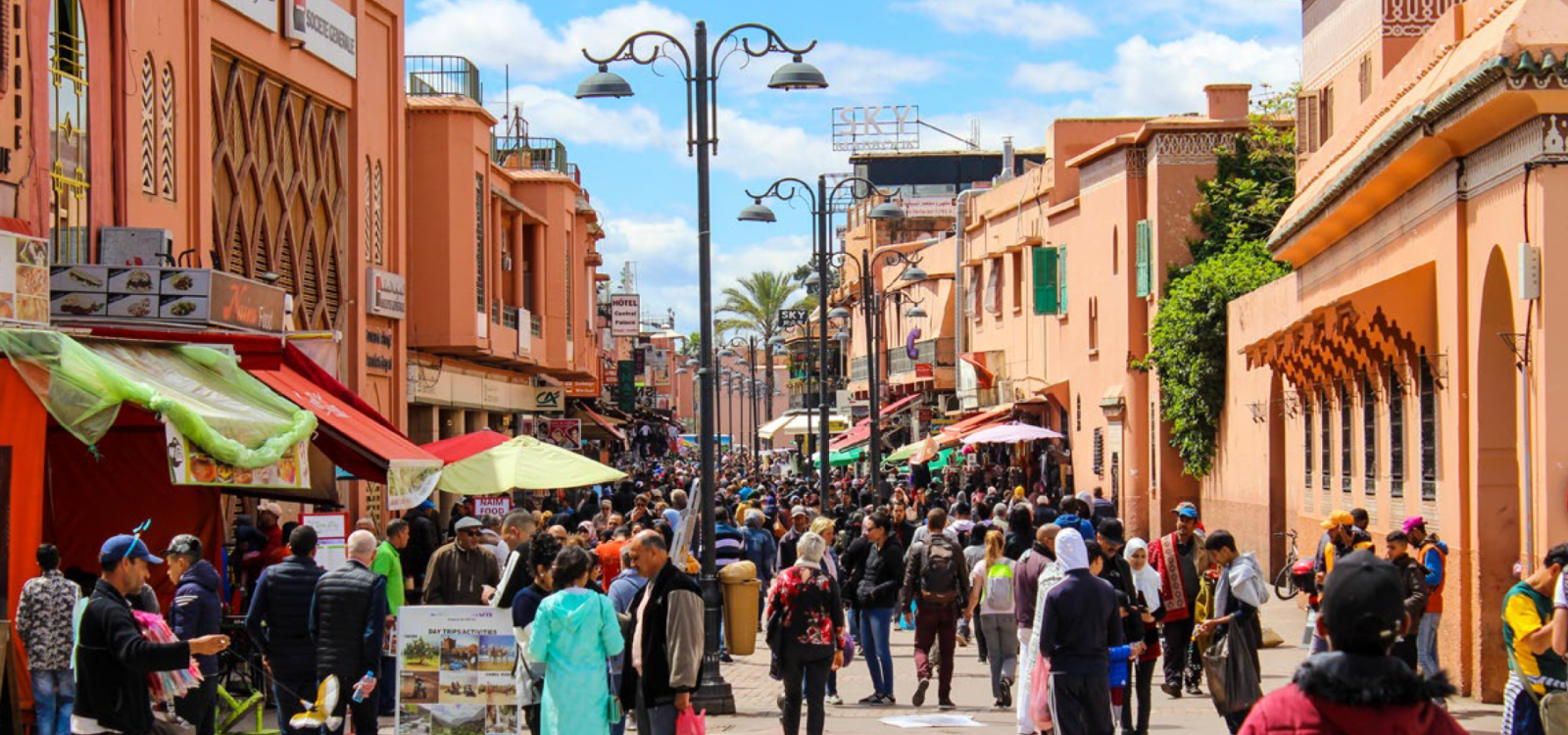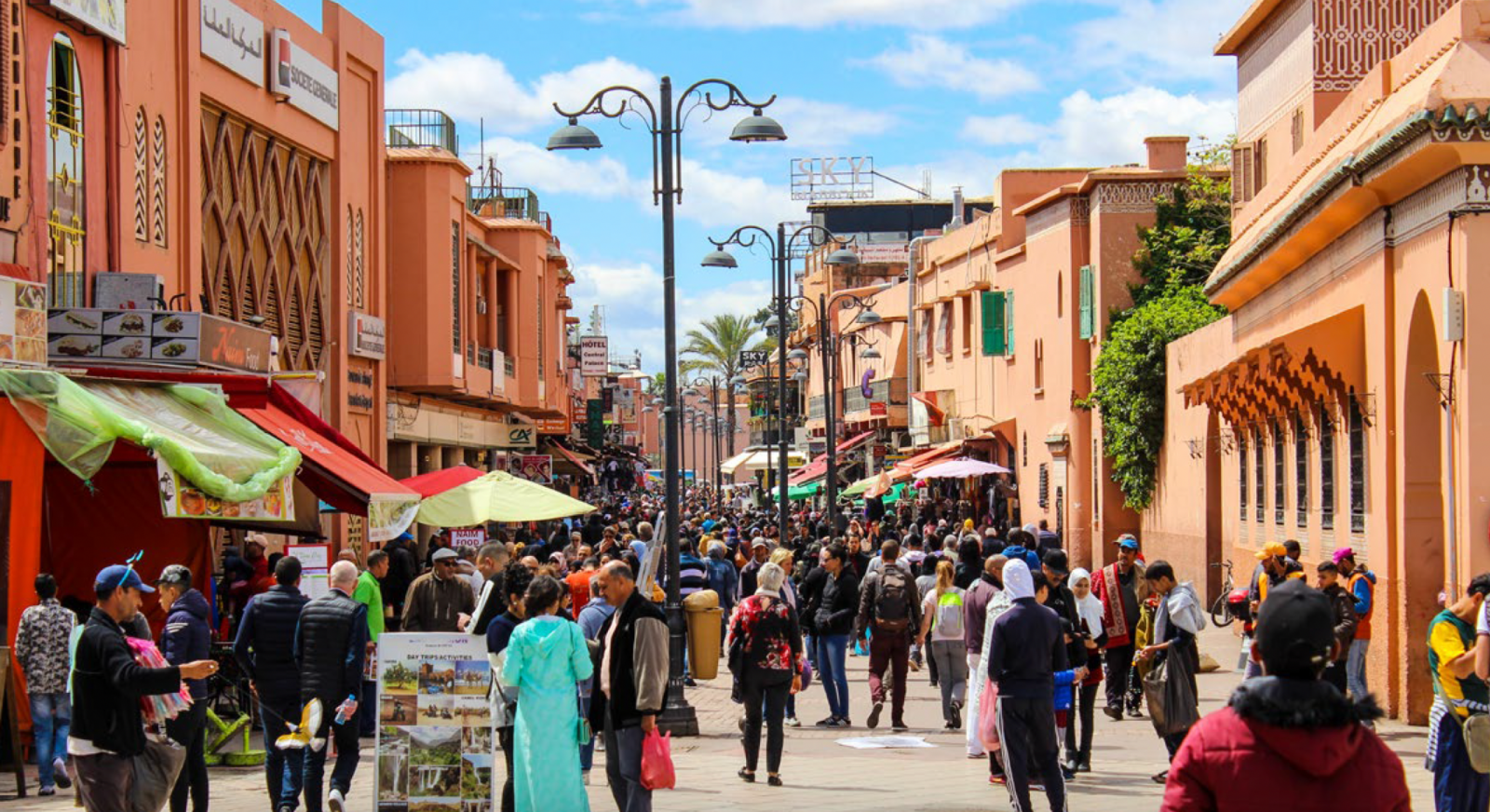Improving the labour market and domestic market contestability are Morocco’s greatest opportunities for increasing its economic openness
The Legatum Institute’s mission is to create a global movement of people committed to creating the pathways from poverty to prosperity and the transformation of society. Our research work is focused on understanding how prosperity is created, and to that end, with the generous support of the Templeton World Charitable Foundation, we have published a Global Index of Economic Openness to rank countries’ ability to interact with, and benefit from, both domestic and international commerce.
Click here to download the report
This Morocco case study is one of a number of in-depth reports which analyse an individual country’s performance on the key characteristics of openness to trade, investment, ideas, competition, and talent.
The report highlights how, on many metrics, Morocco has made good social and economic progress in the past two decades: with its income per capita increasing by 70% since the turn of the Millennium, and poverty rates falling by 40% over the last 10 years. Moreover, Morocco has experienced significant change since 2011, when the King introduced a new constitution following the Arab Spring.
However, Morocco faces big challenges. Like the rest of the world, the current coronavirus pandemic will mean less trade and larger government deficits for some time. This will add to the challenge of the nation’s economic growth, which has been on a downward trend for the last two years.
Despite this, we see much cause for optimism. Morocco’s important trade arrangements, political stability and improving infrastructure provide a strong foundation for increased economic openness. The government continues to identify a range of economic and legal reforms that will lead to improvements, and we expect the Commission for the New Development Model to provide impetus for further development.
Executive Summary
This report explores the extent to which Morocco has the fundamental characteristics of open economies, and where the opportunities lie for further development.
It reveals that Morocco ranks 72nd overall in the Global Index of Economic Openness, and 9th in the Middle East and North Africa region.
- Morocco performs most strongly in Market Access and Infrastructure, ranking 64th, having risen four places over the last decade. The country has significantly improved its infrastructure, particularly its competitive mobile phone market – which has driven up high quality internet access – as well as the capacity and quality of its seaports. However, challenges remain as Morocco also faces threats from the impact of environmental pressures on its water resources, compounded by increased demand. The report recommends mitigating the impacts of declining rainfall by continuing programmes that invest in sustainable irrigation infrastructure; progressing with measures to improve the efficiency of water use; and expanding efforts to recycle wastewater; as well as building desalination capacity.
- The report shows that Morocco ranks 68th for its Investment Environment, having risen 13 places in the last decade. There have been significant reforms to strengthen intellectual property rights and investor protections, and the financing ecosystem is a particular strength for Morocco. However, the country still has some restrictions on international investment that could constrain development in this area, and so would benefit from easing some capital controls and restrictions on foreign ownership of companies, as well as making it easier to obtain work visas.
- In the past 10 years, Morocco has seen the most progress in its Enterprise Conditions, rising 23 places to rank 70th globally. This is due predominantly to its success in lowering the burden of regulation through a series of reforms which have reduced the amount of time that businesses spend complying with regulation and tax obligations. The environment for business creation has also improved. However, the restrictive and burdensome labour market requires improvement to make it more flexible, in order to reduce the high rate of unemployment and the size of the informal sector. Morocco’s domestic market is also highly concentrated making it difficult for new and small businesses to enter the market, compete, and grow, and so the report recommends expanding the role of the private sector and reducing opportunities for state-owned enterprises to benefit from privileged access to markets.
- The report shows that Morocco ranks 98th for Governance, having fallen 16 places since 2010. Recent reforms show promising signs of tackling corruption, with a new law to protect whistle-blowers and reforms aimed at making public procurement fairer and safer. However, there is still a perception that executive constraints are not sufficiently strong in practice. The Government’s effectiveness is also hampered by a lack of accountability and a fragmented Parliamentary system; and there are issues with the court system which can be inefficient and prone to corruption. To improve the quality of governance, the report recommends reforming the judiciary, establishing legally independent regulators, as well as continuing to strengthen the role of the National Commission for Integrity and Anti-Corruption by fostering its independence and access to resources.



